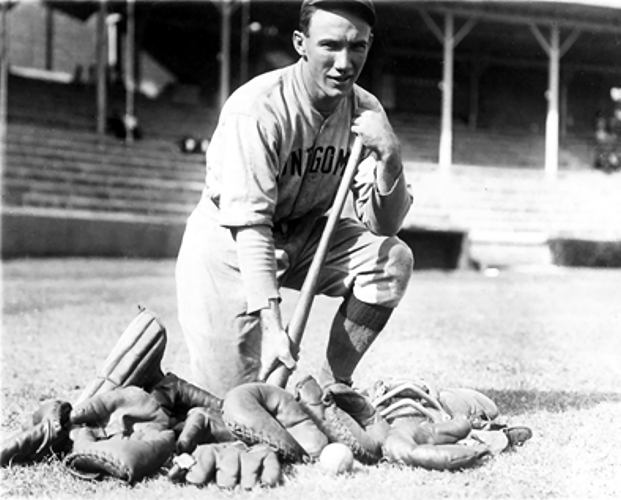‘Goat’ Walker: Getting what he deserves?
Published 7:20 pm Friday, March 15, 2024

- Thomas Roy ‘Goat’ Walker, a native of Troy, played for Troy State Normal School in the 1920s and for AA teams in the Southeastern, Texas, Piedmont and Sally leagues. Goat Walker played professional ball for 15 years and recorded about 300 victories on the mound.
|
Getting your Trinity Audio player ready...
|
Going through and discarding the effects of a loved one is not an easy task, but it’s a necessary one.
After Tommy Horn’s dad, Ray, died, a journey through his past led to discoveries that enlightened his life and directed him along paths he would not have taken otherwise.
Horn discovered a scrapbook that belonged to his dad’s, mother, Maude.
As he thumbed through the scrapbook, Horn became fascinated by newspaper clippings of his grandmother’s brother Thomas Roy ‘Goat’ Walker.
“I had heard about him and that he was a great baseball player, but I didn’t realize how good he was until I found the old scrapbook,” Horn said.” The more I read about him the more interested I became.”
Goat Walker was a native of Troy and pitched for the 1923 Troy State Normal School baseball team that went through a grueling season undefeated.
Horn played first base for the Trojans in the 1970s and immediately noticed a pattern among the nephews in the family.
Walker played for Troy State Normal School in the 1920s; his nephew, John (Johnny) Lum Horn was a catcher for Troy State College in the 1950s. John Horn’s nephew, Tommy, played first base for the Trojans in the 1970s and Tommy Horn’s nephew, Michael Horn, played for Central Alabama Junior College in Alexander City.
Although Michael broke the chain of Horn family baseball players at Troy State, he did keep the chain of baseball-playing nephews intact.
The baseball lineage began with Walker and filtered down through the nephew system.
However, Walker was the only one to play professional baseball. He played for AA teams in the Southeastern, Texas, Piedmont and Sally leagues.
“In his 15 years in professional baseball, Goat Walker won at least 276 games, not including the games he won in semi-pro ball. All totaled, he won around 300 games.
Goat Walker was once asked how many games he had won and he didn’t know.
“Max Mosley wrote for The Montgomery Advertiser, at that time and his research totaled 276.
Walker began his professional career with the Southeastern League in Birmingham in 1925. He played the next five years for the Montgomery Lions and quickly became the most popular player on the team.
Goat was a knuckleball pitcher and was said to mow’em down with lightning fast precision, Horn said.
He was also a very good hitter and was often called on to play in the infield or outfield when another player was injured.
“He was an outstanding player, just not quite good enough to make it to the major leagues,” Horn said.
Walker did get to suit up with the best of them, even if he was on the opposing team.
The 1927 New York Yankees have arguably been called the finest team to ever play the game, and some would say that the 1928 Montgomery Lions squad was the best minor league club ever fielded, Horn said.
‘The Montgomery Lions 1928 season started with an exhibition game against the New York Yankees that returned almost its entire team from the great 1927 team,” Horn said. “The Yankees were headed north after spring training in Florida and stopped off at Cramton Bowl to play a game against the Lions.”
The fans jammed the stadium and were treated to triples off the bats of Babe Ruth and Lou Gehrig and Bob Meusel went three for five.
The Bronx Bombers beat the Lions 10-2, but Goat Walker and his teammates held their own against the best baseball players of that time.
The Lions won the Southeastern League championship that year, beating Pensacola 7-1 in the final game for the title.
Goat Walker played for the Lions until 1930. Then he played a couple of years with other AA teams and three years of semi-pro ball before returning to pro ball with Jacksonville.
In 1940, he was back in Montgomery with the Rebels.
“Because of his age, they called him Old Man River and he just kept on winning,” Horn said.
Walker also had a blazing bat. At one point in the season, he had at least one hit in the nine games he pitched. In five of those games he had two or more hits.
He was the best pinch-hitter on the squad and had a batting average of .371.
“That year, he won 25 games for the Rebels,” Horn said. “He closed out his career in 1942, when he was over 40 years old, but he won 20 games. He had a great career and I’m proud to know that Thomas Roy ‘Goat Walker’ was my great uncle.”
Horn has hopes that the scrapbook he found among his dad’s belongings would lead to Goat Walker being named to the Troy State University’s 1930s Baseball Hall of Fame.
“Goat Walker played professional ball for 15 years and recorded about 300 victories on the mound,” Horn said. “I think he is deserving of recognition by the college where he played. I would really like to see Troy University honor him.”
If that happens, another page will be added to the scrapbook of Walker’s life.





